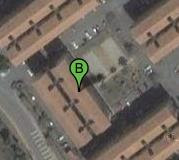Spyware glossary
Adware
Typically, adware components install alongside a shareware or freeware application. These advertisements create revenue for the software developer and are provided with initial consent from the user. Adware displays Web-based advertisements through pop-up windows or through an advertising banner that appears within a program's interface. Getting pop-up advertisements when you’re working on your computer is very annoying.
Spyware
Spyware often installs as a third-party component bundled with a freeware or shareware application, just like adware, making the distinction between the two somewhat vague. Spyware includes code used to gather and transmit information about the user or his or her behaviour to a third party. This statistical data often is collected without the knowledge or consent of the user.
Hijackers
Often installing as a helpful browser toolbar, hijackers may alter browser settings or change the default home page to point to some other site.
Trojan horses
Trojan horses slip into an individual’s system and run without the user’s knowledge. They can have many functions. For example, some use a computer's modem to dial long-distance, generating huge phone bills for the computer owner. Unlike viruses and worms, Trojan horses do not make copies of themselves.
Tracking cookies
Internet browsers write and read cookies, files with small amounts of data (such as site passwords and settings) based on instructions from Web sites. In many cases, cookies provide a benefit to users. However, in some instances cookies are used to consolidate and track user behaviour across different sites, which provides marketers with private information about an individual.
Typically, adware components install alongside a shareware or freeware application. These advertisements create revenue for the software developer and are provided with initial consent from the user. Adware displays Web-based advertisements through pop-up windows or through an advertising banner that appears within a program's interface. Getting pop-up advertisements when you’re working on your computer is very annoying.
Spyware
Spyware often installs as a third-party component bundled with a freeware or shareware application, just like adware, making the distinction between the two somewhat vague. Spyware includes code used to gather and transmit information about the user or his or her behaviour to a third party. This statistical data often is collected without the knowledge or consent of the user.
Hijackers
Often installing as a helpful browser toolbar, hijackers may alter browser settings or change the default home page to point to some other site.
Trojan horses
Trojan horses slip into an individual’s system and run without the user’s knowledge. They can have many functions. For example, some use a computer's modem to dial long-distance, generating huge phone bills for the computer owner. Unlike viruses and worms, Trojan horses do not make copies of themselves.
Tracking cookies
Internet browsers write and read cookies, files with small amounts of data (such as site passwords and settings) based on instructions from Web sites. In many cases, cookies provide a benefit to users. However, in some instances cookies are used to consolidate and track user behaviour across different sites, which provides marketers with private information about an individual.

<< Home